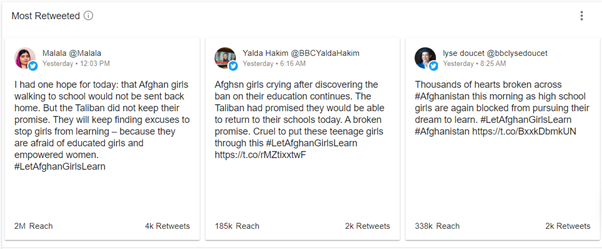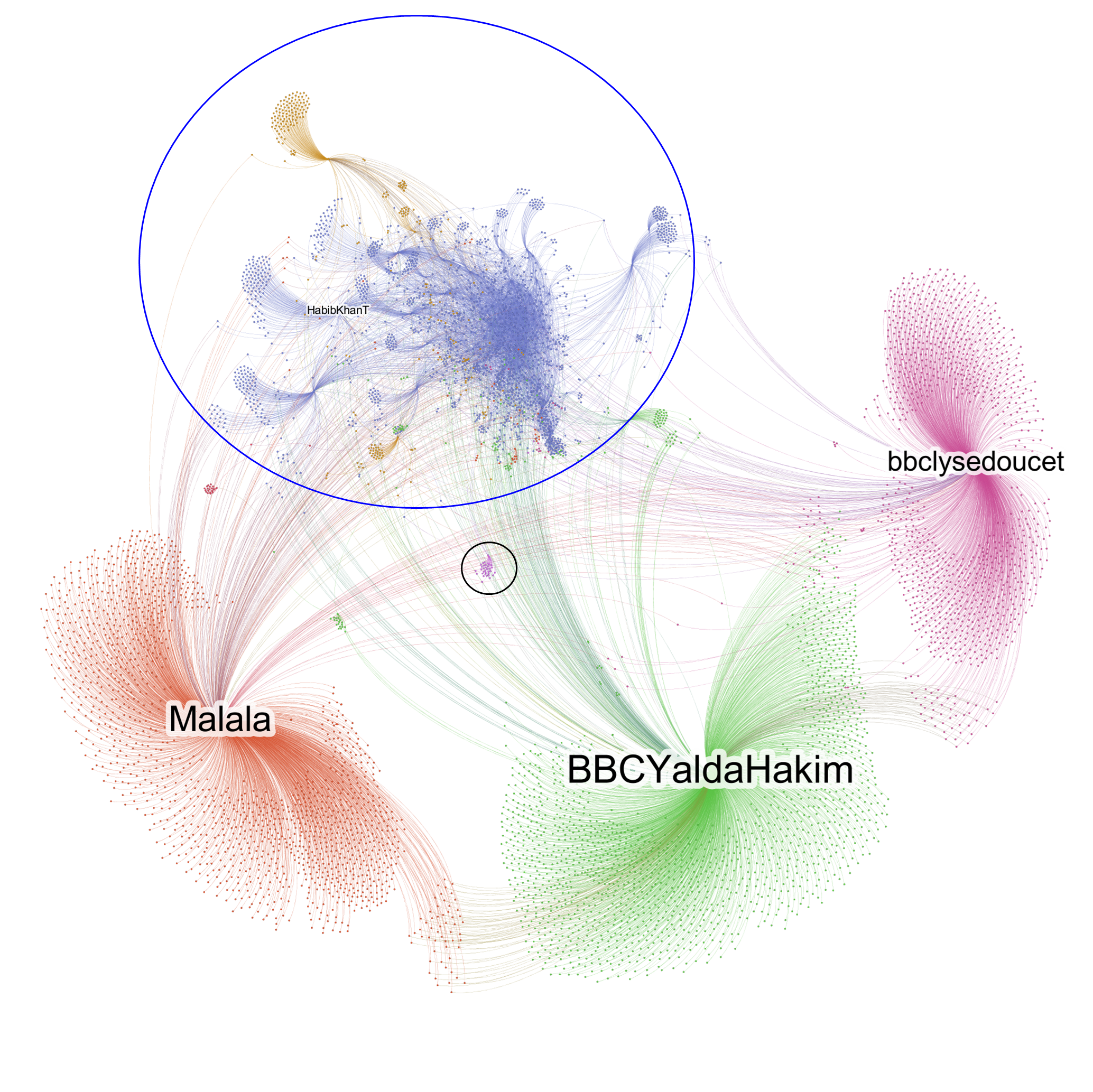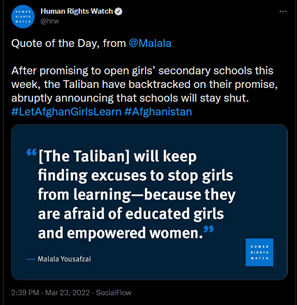On March 23, the Taliban’s decision not to reopen secondary schools for girls prompted a wave of protest both online and in the real world. With the decision coming at short notice, many girls were turned away at the school gates, with videos of their tears and anger circulating quickly online.
Alongside videos and images, a range of hashtags were used on social media. Afghan Witness (AW) monitored the most popular hashtags on the day, which included: #ReopenGirlsSchools, #EducationForAll, #educationisgirlsright, #EducationPrevails, #LetAfghanGirlsLearn, #دنجونوښوونځي_پرانېزئ and #زده_کړې_دټولولپاره. The hashtags were monitored until 1800 GMT later that day, giving a snapshot of the immediate online response.
The Taliban’s U-turn on their decision to reopen girls’ schools became a high-profile and international news story, and unsurprisingly, a significant volume of the online discussion was driven by international figures with large followings on social media. Over 17k people used one of the main hashtags, with almost 34k mentions in total, but the top posts came from girls’ rights campaigner Malala and two BBC correspondents – Yalda Hakim and Lyse Doucet.


Figures 1 & 2: Meltwater analysis of the hashtags, captured 24/03/2022 10:55
The communities formed around the hashtags and posts are naturally dominated by these high-profile accounts, but there were several distinct communities in the network graph:

Figure 3: The results of forming a hashtag network from the monitored hashtags. Unconnected islands have been removed for readability.
As seen above and reinforcing the meltwater data, posts from Malala, Yalda Hakim and Lyse Doucet were widely retweeted by international audiences. The small community highlighted in the centre of the graph, in the black circle, is formed by accounts retweeting the Human Rights Watch (HRW) account.

Figure 4 : Screenshot of HRW tweet on girls’ schools not reopening
The larger community highlighted in the blue circle is what could be considered the more localised or Afghan Twitter community, incorporating accounts both in and out of Afghanistan but focused around Afghan constituencies. Isolating the ‘Afghan community’ from the graph and examining the accounts shows a network of accounts centred around campaigners who have been vocally anti-Taliban and pro-girls’ education.
The most prominent accounts include Afghan and Pashtun campaigners such as Habib Khan, several accounts associated with the Pashtun Tahafuz Movement (PTM) such as Manzoor Pashteen, and the father of Malala, Ziauddin Yousafzai.
It is notable that there is relatively limited visibility of Afghan female campaigners, however. While Nilofar Ayoubi features, she is no longer living in Afghanistan. Female campaigners inside Afghanistan who have sizable followings and were previously at the centre of online campaigning appeared to be absent in the snapshot of the online response.
The reported arrests of several prominent female activists in recent months, who have since been released, has generated widespread media coverage and international concern around the safety of activists in Afghanistan – particularly women – and freedom of speech in the country more generally.
There have been a string of protests on the streets of Afghanistan since the schools U-turn, with some girls protesting for their right to education and the reopening of schools. On March 23, dozens of girls marched outside of the Sardar Kabuli High School, demanding the immediate reopening of all schools. Protests – including indoor, outdoor and silent demonstrations – continued in the following days and were also organised by the Afghan diaspora. In the capital of Ireland, Dublin, Afghan refugees took to the streets to protest against the closure of girls’ schools.


